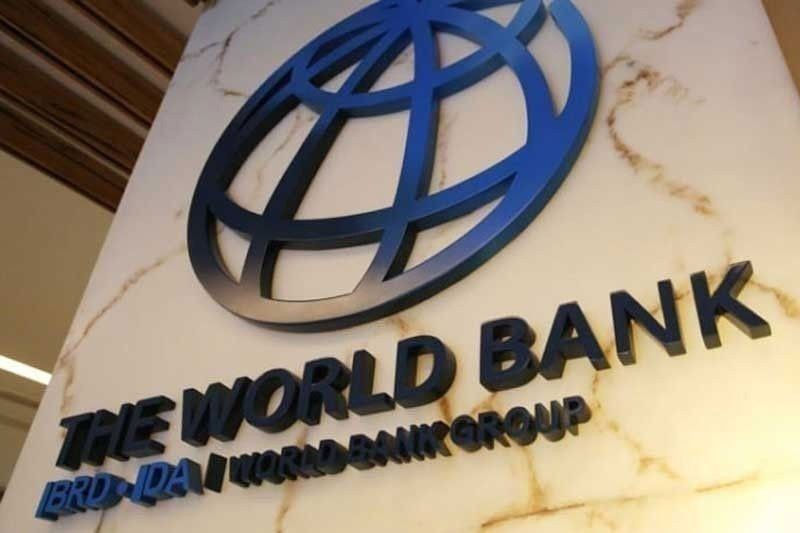World Bank commits continued support for Philippines digital transformation

MANILA, Philippines — The World Bank said it is committed to supporting the digital transformation of the Philippines, but underscored the need for reforms particularly in the investment environment.
“The World Bank is committed to supporting the Philippines in its digital economy agenda. Reforms that will enable digital transformation across the government and the private sector are at the core of some of the current and future projects that are supported by the World Bank,” said Ndiame Diop, World Bank country director for the Philippines, during the launch of the latest digital economy report for the Philippines yesterday.
The Philippines Digital Economy Report 2020, crafted by the bank with the National Economic and Development Authority (NEDA), provides an overview of the Philippine digital economy, as well as challenges and opportunities for expansion and increased adoption amid the pandemic.
Among the key findings of the report is that while the shift to digital payments, telemedicine and online education has risen to cope with the health crisis, the use of digital technologies in the country remains below potential because of the wide digital divide between those who have access to reliable internet connection.
“Digital transformation has made life comfortable for some, but this also widened the digital divide. Sixty percent of households do not have access to very good internet. There is a wide gap in digital literacy across ages,” said Diop.
He said that internet connectivity, the foundation of the digital economy, remains limited in rural areas. Where available, services can be expensive and of inferior quality.
In areas with service, Filipino consumers experience slow download speeds. At 16.76 megabytes per second (Mbps), the Philippines’s mobile broadband speed is much lower than the global average of 32.01 Mbps. In the region, the 3G/4G mobile average download speed stands at 13.26 Mbps compared to only seven Mbps in the Philippines.
Challenges to growth
The report thus stresses the need to remove obstacles to the improvement of digital infrastructure nationwide, including the lack of competition and restrictions on investment in the telecommunications markets.
These hurdles include the designation of telecommunications as a public utility, which limits foreign ownership and places a cap on the rate of return.
Also cited as challenges to the growth of digital economy in the country are the still weak adoption of digital payments because of the low level of bank account ownerships, as well as the perceived risk of digital transactions.
Diop said government would have to take the lead through its own digital transformation to encourage wider participation in the digital economy.
“The public sector must lead by example, by fast-tracking its own digital transformation and implementing its e-governance project,” said Diop.
Two entry points into the digitalization of government transactions are expanding the use of e-signatures among agencies and mandating the acceptance of e-invoices and e-receipts.
World Bank’s support to digital transformation in the country is currently concentrated on government projects.
The bank approved recently a $600 million loan for the Philippines Beneficiary FIRST Social Protection Project that will digitalize the delivery of social protection assistance for at least four million families covered by the government’s conditional cash transfer program.
SPLIT
In June, the bank also approved financial support to the $370 million Support to Parcelization of Lands for Individual Titling Project (SPLIT) that will accelerate the subdivision of collective Certificates of Land Ownership Award and generate individual titles on lands awarded under the Comprehensive Agrarian Reform Program.
The SPLIT Project will support the government’s ongoing efforts for parcelization and individual titling through the adoption of improved technologies and digital platforms, improvements in regulations, streamlining of procedures in the titling process, and enhanced consultations with beneficiaries.
“We try as much as possible to achieve an inclusive digital agenda,” Diop said.
World Bank economist Kevin Chua, lead author of the report, said the bank is also working on other projects on digital transformation such as the automation of some of the processes of Customs, as well as in the human resource management in civil service.
“What we are doing right now is we are supporting the government when it comes to its digitalization initiative,” Chua said.
He said fostering innovation and improving the business environment would be critical in supporting the digital economy.
Recent government efforts to speed up the rollout of mobile network infrastructure through a common tower policy are steps towards the right direction.
“Moreover, the government can take an active role in fostering policies that reduce the digital divide and create a more conducive business environment for the digital economy to flourish,” he said.
- Latest
- Trending





























